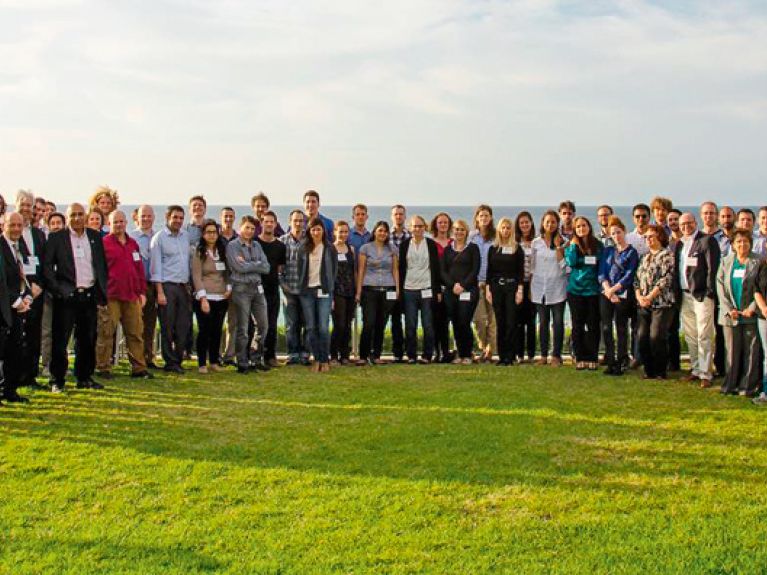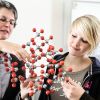Energy for the future
Fostering young research talent is a major focus of the German-Israeli Battery School.

They increase mobility and reduce cable clutter: batteries – both rechargeable and disposable – have become an indispensable element of modern everyday life. They are no longer merely used as a power source for smartphones, flashlights and lawnmowers, but are also playing a crucial role in electric cars and in the energy transition because of their capacity to store renewable energy. New ideas for high-performance batteries are becoming increasingly important worldwide – and are the main focus of the German-Israeli Battery School (GIBS).
Supported by the Federal Ministry of Education and Research (BMBF), this German-Israeli scientific joint venture is working on fundamental questions of energy supply, as the project’s coordinator Professor Jürgen Janek from the Institute of Physical Chemistry at Giessen University (JLU) explains: “The basic idea is to bring young scientists together with renowned researchers and enable them to engage in a professional exchange on a personal level,” he says. “Our colleagues from Israel are world leaders in the field of electrochemical energy strategies, and their research results are discussed internationally.”
Scientists from Tel Aviv University, Bar-Ilan University and Technion (Israel Institute of Technology) are participating in the GIBS on the Israeli side. From Germany, the Karlsruhe Institute of Technology (KIT), the Helmholtz Institutes of Münster and Ulm, Forschungszentrum Jülich, Technische Universität München and JLU Giessen are involved in the project, which is intended to run for 15 months. An initial symposium with lectures, seminars and workshops was held in Tel Aviv in October 2014 and provided an introduction to current issues in battery research. The 25 young German and Israeli scientists were selected from a large number of applicants. “Fourteen German and Israeli experts presented their latest research findings at our first meeting, which was extremely exciting, not only for the young researchers,” says Janek. The forum also gives the young scientists the chance to present their theories and ideas for discussion – a unique opportunity for PhD students such as Dima Kaplan from Tel Aviv University and Arie Borenstein from Bar-Ilan University. “I received some positive and constructive feedback from a number of renowned scientists,” comments Borenstein, whose PhD thesis concentrated on super capacitors. He was also able to gain many interesting insights with other participants during the course of the lectures and discussions. “The atmosphere throughout the conference was positive and friendly,” reports Borenstein. Dima Kaplan, an up-and-coming expert in platinum-based catalysts for PEM fuel cells, also took advantage of the chance to engage in scientific exchange – not least during the lunch and coffee breaks. “I had some very productive conversations, especially with our German colleagues,” recounts Kaplan. “I was able to incorporate the results into my work, and we have remained in touch via email even after the meeting to keep the discussion going.”
The participants in GIBS aim to apply their basic research to develop new types of battery. Whether lithium-ion batteries, lithium-air batteries, fuel cells or other electrochemical energy systems ultimately turn out to be the storage systems of the future will be revealed by future experiments. It will also depend on the respective application. “In the case of electric cars, for instance, research is being conducted into batteries with a much higher energy density and thus less weight than conventional models,” explains Janek. “When it comes to storing renewable energy, on the other hand, battery size is not so important, although the batteries must function reliably and be inexpensive to produce.“ In autumn 2015, the researchers will again be focusing on innovative approaches at the second GIBS symposium in Heidelberg, which will involve interesting lectures and fascinating guests. ▪

